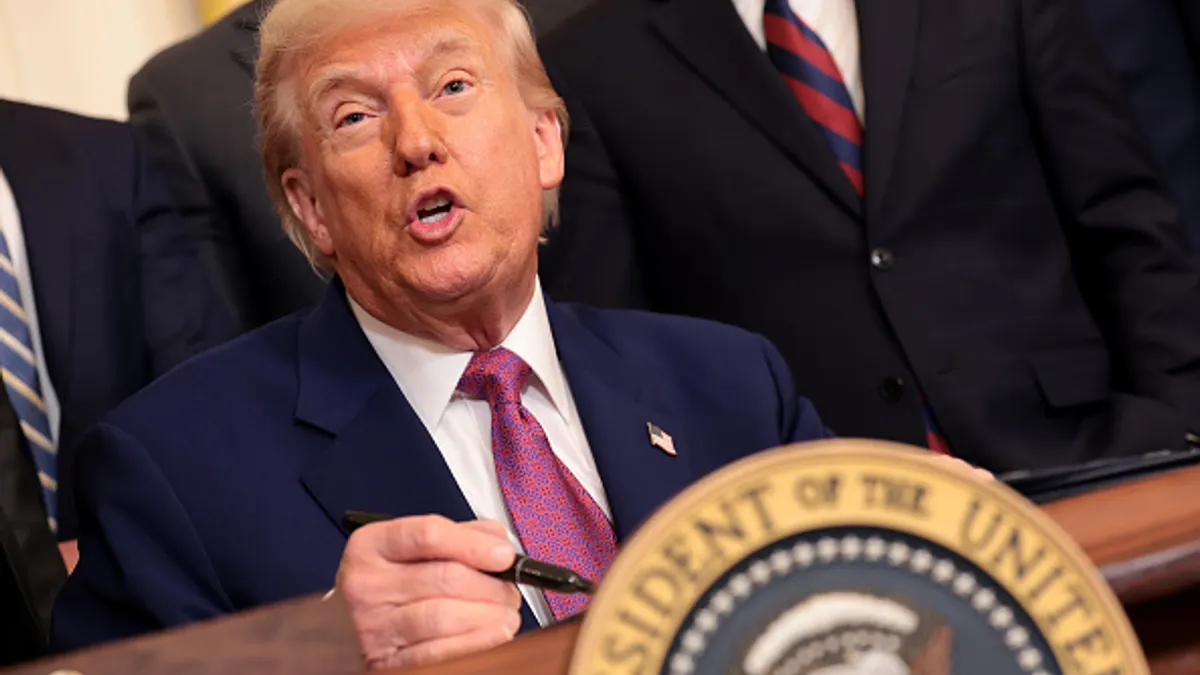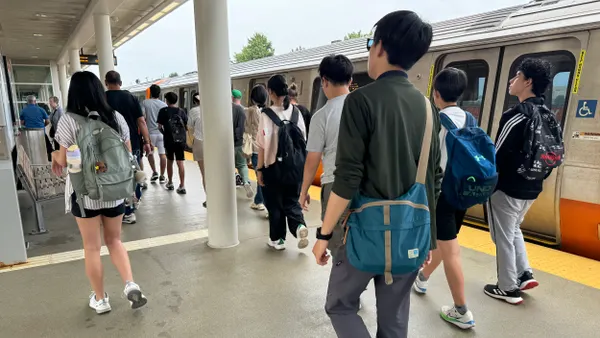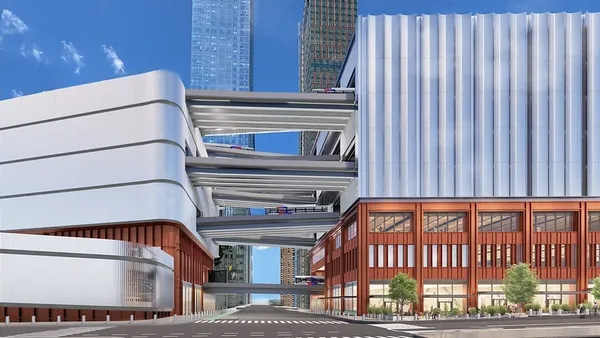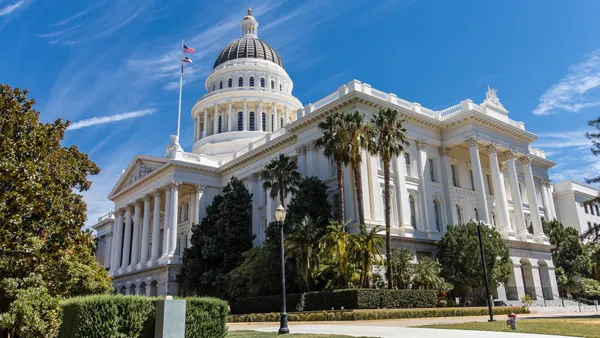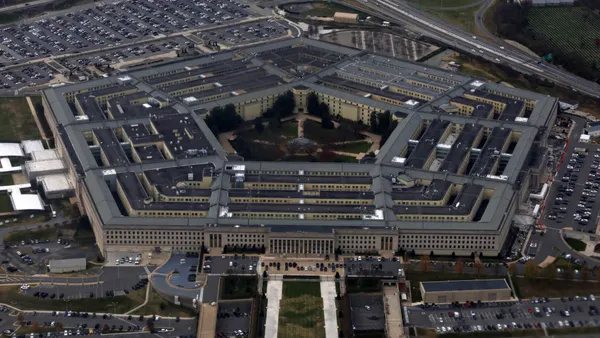Dive Brief:
- Legislation introduced by House Democrats last week aims to encourage high-speed rail in the United States with a $205 billion investment as elected officials say they are turning their focus to a major infrastructure package.
- The American High-Speed Rail Act, introduced by Reps. Seth Moulton, D-MA, Brendan Boyle, D-PA, Suzan DelBene, D-WA, and Mike Doyle, D-PA, would provide $41 billion over five years in Federal Railroad Administration (FRA) grants for high-speed projects, and offer incentives for $38 billion in non-federal funding. It would prioritize grants for regions not served by airlines, or which have government-subsidized routes, and develop safety standards and regulations.
- Supporters of the bill say it would better connect so-called "economic megaregions," create a national transportation strategy and reduce traffic congestion. They also said it would create at least 2.6 million jobs over five years in construction and other sectors.
Dive Insight:
With the American Rescue Plan safely passed, elected officials say they are now turning their attention to an infrastructure package, something that has long been discussed but never delivered. Meanwhile, the nation's infrastructure continues to be in a poor state, according to experts at the American Society of Civil Engineers; the Rail category received a B, while Transit received a D-.
Transportation Secretary Pete Buttigieg has expressed support for high-speed rail on Twitter. During his confirmation process last month, Buttigieg gave many hope for a major infrastructure investment by the Biden administration.
But high-speed rail, like hyperloop, remains a potential future transportation option that promises much but has yet to become a reality. High-speed rail projects in Texas, Florida and other states have proceeded despite the coronavirus pandemic, while the California High-Speed Rail Authority's (CHSRA) project in California has been dogged by what some perceive as management missteps, delays and cost overruns. But there is hope still elsewhere in California, as construction has continued on Brightline West's high-speed train between Southern California and Las Vegas.
Hyperloop advocates believe their technology will come to fruition sooner, with an apparently supportive federal government and Virgin Hyperloop positioning itself to be a leading company with a certification center planned for West Virginia and having undertaken brief human travel tests.
Moulton said the federal government must reconsider how it invests in infrastructure, especially as the country looks to recover from a pandemic and think differently about its approaches in a variety of sectors. "We spend vast amounts of money subsidizing planes, which are delayed by weather, and roads, which are crumbling nationwide," Moulton said in a statement. "We have the chance coming out of this pandemic to think big and think differently."
Last year, Moulton tried to put that into practice when he unveiled a $205 billion national high-speed rail plan, much of which has made it into this bill. In an accompanying white paper, he noted that other countries have invested heavily in inter-city rail, and said the economic benefits of traveling between, for example, Houston and Dallas in 90 minutes could be enormous.
The legislation received support from a variety of groups, including organized labor, the US High Speed Rail Association and the mobility arm of Siemens USA. The latter's President and CEO Barbara Humpton wrote an open letter recently calling for investment in rail of all types, including high-speed.
In an interview after the letter's release, Marc Buncher, president of Siemens USA's Mobility Division, said Moulton must be an example to others if infrastructure investment is to be a reality.
"When the federal folks start to think about things that are outside of their region and start to think about the change in the country, that's when we'll really start to get the benefit and the bigger bang for it," Buncher said.





